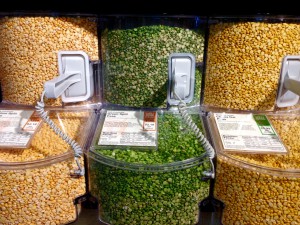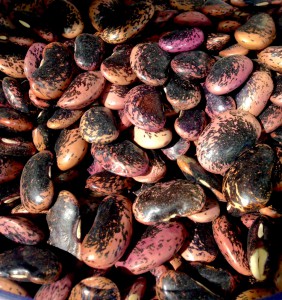You may have heard about it as a fad diet and perhaps even tried it yourself. Some people claim going gluten-free makes them feel more energetic and awake. But for those with celiac disease, it is a necessary lifestyle change that can help to prevent other serious health conditions.
My Celiac Story

I have always struggled with stomach discomfort, which various childhood doctors attributed to irritable bowel syndrome (IBS). But in college, my stomach pains worsened, and my family and I speculated I had an ulcer. So, I sought out a gastroenterologist and went in for an endoscopy.
The procedure is quick and painless (due to being sedated), and it involves sending a camera through the mouth to take a look at the stomach lining. A biopsy is taken of the intestine and a microscope notes the absence of intestinal villi (fingerlike follicles). This is a surefire way of recognizing the condition.
I woke up from the procedure with the gastroenterologist standing next to me saying, “No more beer for you — you’ve got celiacs.”
Gluten-Free: More Than Just Buzz Words
I’ve spent the past four years learning about the condition and finding out why sticking to a strict gluten-free diet is so important. There are definitely times where I crave glutenous goodies, but I find the hardest thing is explaining the disease to others so they know I’m not just glorifying the fad. I enlisted the help of UVA dietitian Katherine Basbaum to get the scoop on some important celiac information.
Celiac disease (CD) is a genetic autoimmune disorder of the gut triggered by the protein ‘gluten’ in wheat, rye and barley. Common foods containing gluten are breads, pastas, cereal, pastries, beer, etc. Unfortunately, for me, that means no more flour tortillas — a weakness of mine! Basbaum says when someone with CD eats anything containing gluten, the “body’s immune system will react as if gluten is an invader and proceed to attack the lining of the small intestine and prevent the body from getting key nutrients.”
There is no treatment besides a lifelong adherence to a gluten-free diet. Ingesting even small traces of gluten, like crumbs from a piece of toast, can trigger intestinal damage. Reading labels has become a daily ritual of mine, especially for foods I never thought contained gluten: soy sauce, seasoned rice, imitation crab, soup bases and veggie burgers.
“Just A Bite” No Longer Applies

Receiving the diagnosis in college seemed like the end of the world with the constant amass of beer at regular functions. At the time, I didn’t realize the consequences of allowing myself to ingest gluten. It wasn’t until I was properly informed that I realized I could be severely damaging my body in the long-run. Sticking to a strict gluten-free diet minimizes the risk for other conditions like:
- Anemia
- Early onset osteoporosis
- Neurological conditions like epilepsy, migraines, dementia, ataxia, etc.
- Pancreatic insufficiency
- Gall bladder, liver, spleen malfunctions
- Gynecological disorders like infertility and miscarriage
- Intestinal lymphomas and stomach cancers
Gluten-Free is So Healthy — Right?
I noticed a major increase in my energy levels the first month I went gluten-free — a common experience for those who change their eating habits. But I found it a short-lived luxury. According to Basbaum, “Unless you have celiac disease or gluten sensitivity, there is no need to go gluten-free; it will not make you ‘healthier’; in some cases, just the opposite.”
A gluten-free diet can lack important nutrients needed for optimal health, such as fiber, iron, B-vitamins, calcium, phosphorus and zinc. I try to combat this by taking additional vitamins and supplements but it isn’t 100 percent effective.
Basbaum adds, “Not to mention the fact that many people who adopt a gluten-free diet end up gaining unwanted pounds because their diet includes large amounts of high-calorie packaged and processed foods.”
This goes back to reading labels — I have found that many packaged gluten-free foods have higher calorie and carbohydrate counts then the non-gluten-free option. Personally, I stay away from the cookies and crackers and opt to make my own healthier versions. It’s not the easiest method, but at least it allows me to practice my cooking and baking skills!
One Step At a Time
Having celiac disease is by no means an end to dining out or snacking on your favorite foods. I pay more for some of my groceries, especially the specialty flours that I use for cooking or baking, but I can find alternatives to everyday items relatively easily. It also helps to let your friends and family know — that way they will be more willing to branch out with you to find those alternative solutions.
If you think you may have celiac disease, speak with your doctor so he or she can refer you to a UVA dietitian. You can also make an appointment directly at the Nutrition Counseling Center at Northridge by calling 434.243.4749.
I agree. Celiac was once ocnsidered a cidhhlood disease. Studies have shown that most often, chidren who were diagnosed with Celiac, grow up to be adults with unexplained symptoms. All Celiac’s know that this is one of the most difficult dignoses to make. Many doctors still treat the individual symptoms, without treating the underlying cause, which is the very food we consume to stay alive. I have found that, in retrospect, i have had symptoms all my life. Having been misdiagnosed, it took my Uncle, then my Grandfather almost dying, and being dignosed with Celiac sprue to bring the disease to my attention. Seems my family was full of undiagnosed Celiacs, and we have all benefitted from a gluten free diet.
UVA is the best for identifying and treating celiac.
Unfortunately I do not live in VA.
Where can I find a GI, RD who treat celiac in the state of Connecticut?
Helen, thanks for your comment. We can’t give individual medical advice or recommend specific doctors here. Your primary care provider should be able to make a recommendation and referral.